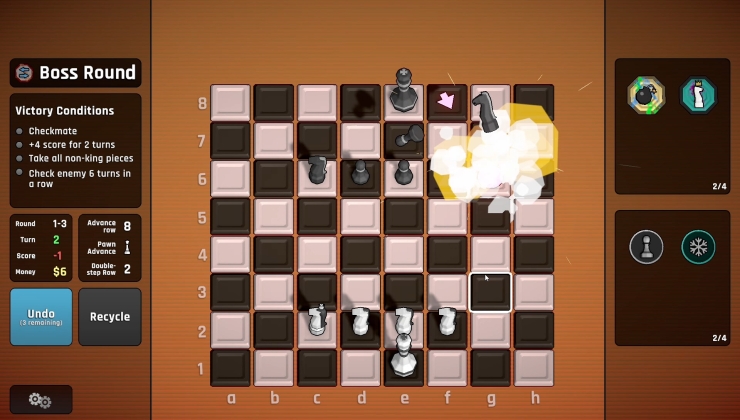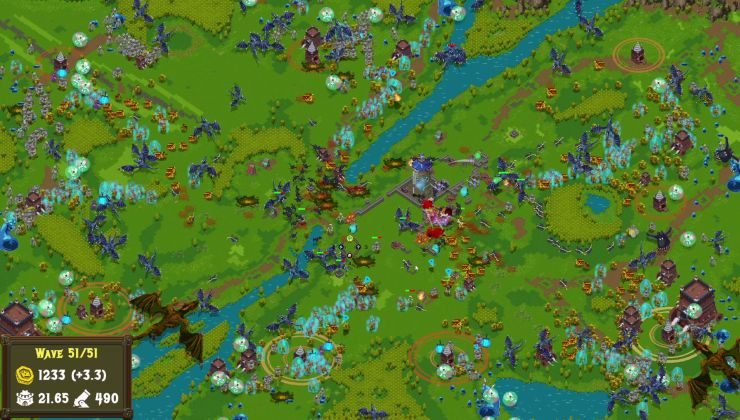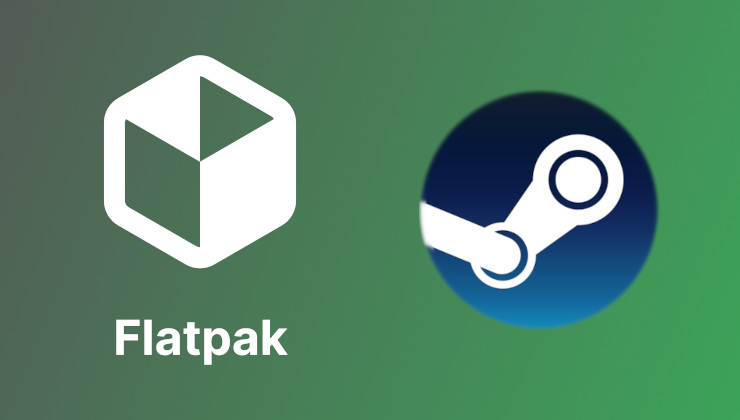Welcome to the Linux gaming news punch episode 16, your weekly round-up to help you keep up to date.
As always, it's hopefully something that's useful for those who just don't have the time to read our news every day.

YouTube videos require cookies, you must accept their cookies to view. View cookie preferences.
Direct Link
Direct Link
Audio feeds:
Also available on Spotify.
Topics covered, click me
Depending on how much news comes out of E3 for us, there might be an extra podcast episode this week!
Some you may have missed, popular articles from the last month:
All posts need to follow our rules. For users logged in: please hit the Report Flag icon on any post that breaks the rules or contains illegal / harmful content. Guest readers can email us for any issues.
Slightly amused by your pronunciation of Google "Stadia" - I had a look at a couple of official videos and the Google people are calling it "Stay-dia" not "Stad-ia" and I presume their pronunciation is the correct way. Meanwhile, when I was first exposed to "Linux", I pronounced it "Lyne-ucks" and not the correct way "Lin-ucks" but subsequently have used the correct way for 20 years.
Which leads me on to a few comments about Stadia:
Possible Positives for Linux -
- Encourages developers to use Vulkan and Linux-friendly libraries for producing Stadia-enabled titles.
- Not much extra work to jump from a working Stadia game to a working Linux game (particularly due to the first item).
- Even Windows-only games produced to support Stadia will favour Vulkan and Linux-friendly tech, so should work better on Proton and WINE.
- Increased popularity of Vulkan will encourage more studios to adopt it and more developers to learn it and use it.
- Actual Stadia games should run across any platform (e.g. Windows, Mac, Linux) via Chrome browser, so we wouldn't be excluded from using it.
- Games played on Stadia shouldn't need anti-cheat measures on the local computer, because the game software is running remotely. (Good for Linux gamers willing to adopt Stadia.)
- Stadia games would be able to run on any platform, and as such Linux gamers would not be locked out from playing (Stadia) games like they are locked out of Windows games.
- There wouldn't be the Game Support issues of games released on Stadia being played on Linux, as compared with the support of Windows titles played on Proton.
- Potential for more Windows gamers to jump to Linux, because Stadia games would work on Linux fine, and so they are not losing out by adopting Linux (also similar to the effect of Proton tech on Steam).
Various Issues -
- Google will be using Stadia for data-mining of players, which is not good for anyone who is concerned with privacy.
- Stadia gaming will require high-speed, low-lag internet and so would not be available to substantial numbers of users.
- Although base Stadia isn't subscription-based, the premium offering is, and this is leading gaming into a rental model (good for publishers), rather than an ownership model (good for customers).
- The customer will no longer own the game files.
Possible Negatives for Linux -
- Game exclusivity might prevent game availability outside of the Stadia play-system.
- It looks like Stadia games will not be available for download and will only be available for online play.
- In the future, there is potential that games could be released exclusively on Stadia (for reasons beneficial to developers/publishers) and not available for download at other vendors.
- Google's Stadia APIs could be detrimental to Linux game release owing to the extra work in making versions of the game with those APIs turned off or replaced.
- Stadia would be taking games away from vendors who do support Linux native titles (e.g. Steam, Itch, GOG, Humble) weakening their market position.
Last edited by g000h on 10 Jun 2019 at 4:20 am UTC
Which leads me on to a few comments about Stadia:
Possible Positives for Linux -
- Encourages developers to use Vulkan and Linux-friendly libraries for producing Stadia-enabled titles.
- Not much extra work to jump from a working Stadia game to a working Linux game (particularly due to the first item).
- Even Windows-only games produced to support Stadia will favour Vulkan and Linux-friendly tech, so should work better on Proton and WINE.
- Increased popularity of Vulkan will encourage more studios to adopt it and more developers to learn it and use it.
- Actual Stadia games should run across any platform (e.g. Windows, Mac, Linux) via Chrome browser, so we wouldn't be excluded from using it.
- Games played on Stadia shouldn't need anti-cheat measures on the local computer, because the game software is running remotely. (Good for Linux gamers willing to adopt Stadia.)
- Stadia games would be able to run on any platform, and as such Linux gamers would not be locked out from playing (Stadia) games like they are locked out of Windows games.
- There wouldn't be the Game Support issues of games released on Stadia being played on Linux, as compared with the support of Windows titles played on Proton.
- Potential for more Windows gamers to jump to Linux, because Stadia games would work on Linux fine, and so they are not losing out by adopting Linux (also similar to the effect of Proton tech on Steam).
Various Issues -
- Google will be using Stadia for data-mining of players, which is not good for anyone who is concerned with privacy.
- Stadia gaming will require high-speed, low-lag internet and so would not be available to substantial numbers of users.
- Although base Stadia isn't subscription-based, the premium offering is, and this is leading gaming into a rental model (good for publishers), rather than an ownership model (good for customers).
- The customer will no longer own the game files.
Possible Negatives for Linux -
- Game exclusivity might prevent game availability outside of the Stadia play-system.
- It looks like Stadia games will not be available for download and will only be available for online play.
- In the future, there is potential that games could be released exclusively on Stadia (for reasons beneficial to developers/publishers) and not available for download at other vendors.
- Google's Stadia APIs could be detrimental to Linux game release owing to the extra work in making versions of the game with those APIs turned off or replaced.
- Stadia would be taking games away from vendors who do support Linux native titles (e.g. Steam, Itch, GOG, Humble) weakening their market position.
Last edited by g000h on 10 Jun 2019 at 4:20 am UTC
3 Likes, Who?
Slightly amused by your pronunciation of Google "Stadia" - I had a look at a couple of official videos and the Google people are calling it "Stay-dia" not "Stad-ia" and I presume their pronunciation is the correct way. Meanwhile, when I was first exposed to "Linux", I pronounced it "Lyne-ucks" and not the correct way "Lin-ucks" but subsequently have used the correct way for 20 years.I pronounce everything wrong, nothing new there.
Sin (our streamer) always gets me for meme's, as I accidentally called it meymey's and then it suck for ages
3 Likes, Who?
- Encourages developers to use Vulkan and Linux-friendly libraries for producing Stadia-enabled titles.
It may also encourage some middleware developers to get proper Linux versions of their stuff.
1 Likes, Who?
Please fix the title as this is episode 16.
0 Likes
Please fix the title as this is episode 16.So it is, no one sent in a correction report though so I've only noticed it today.
0 Likes








 An idiots guide to setting up Minecraft on Steam Deck / SteamOS with controller support
An idiots guide to setting up Minecraft on Steam Deck / SteamOS with controller support How to install extra software, apps and games on SteamOS and Steam Deck
How to install extra software, apps and games on SteamOS and Steam Deck
See more from me